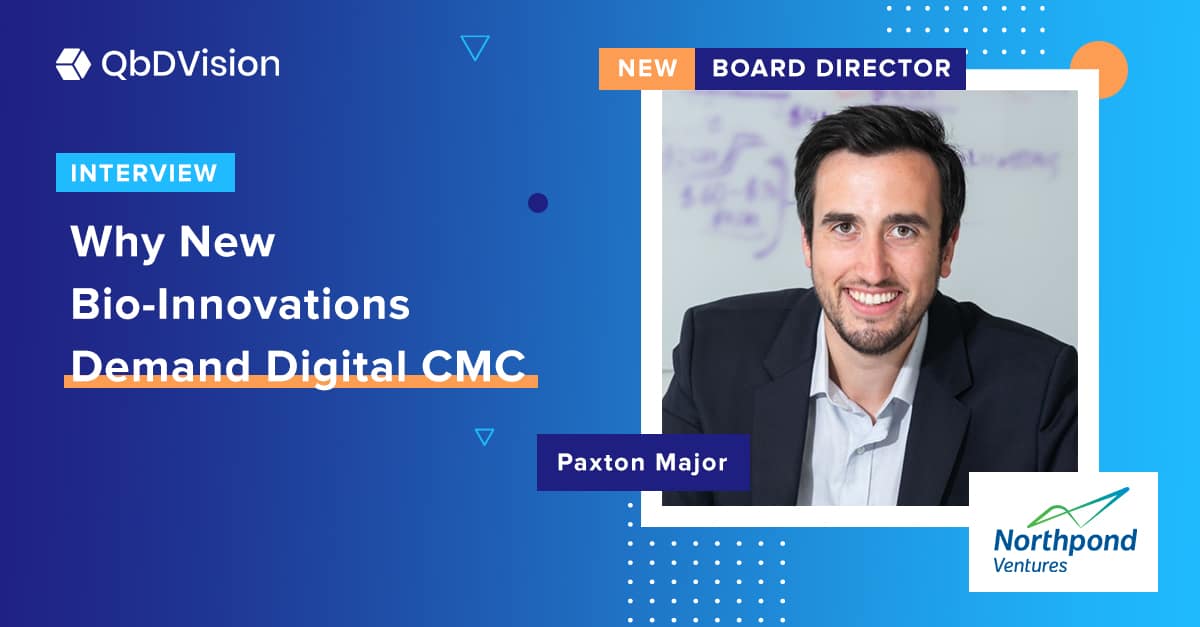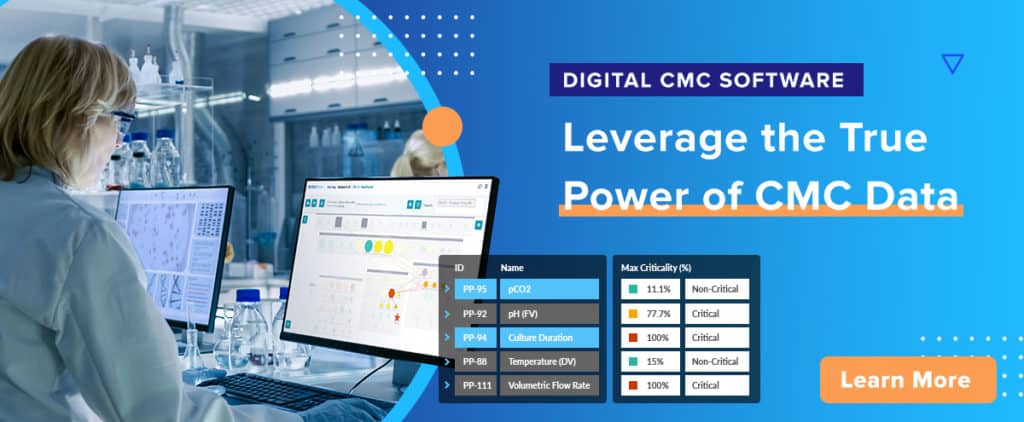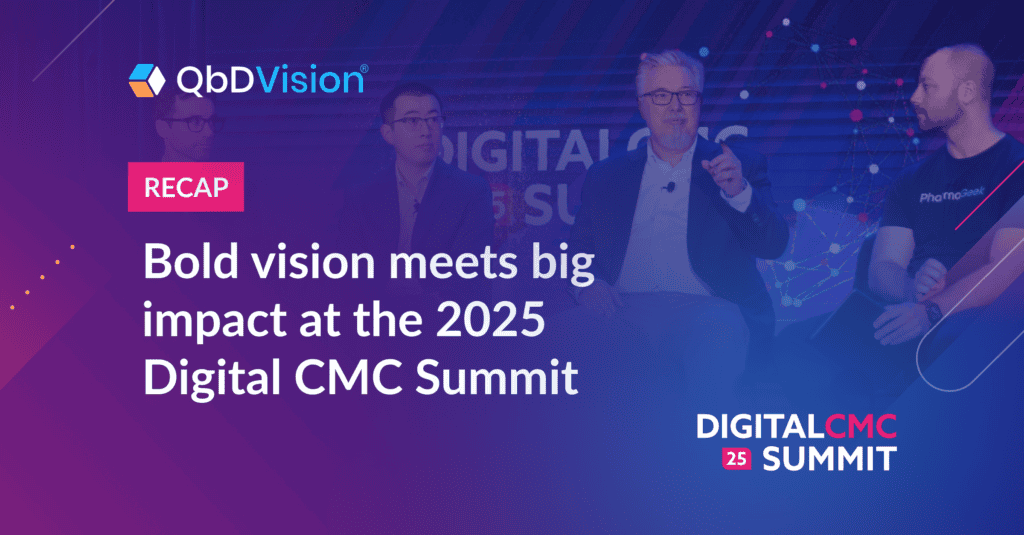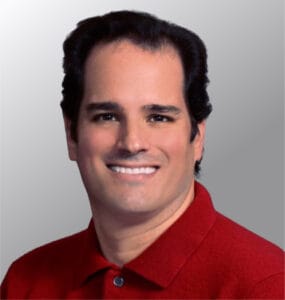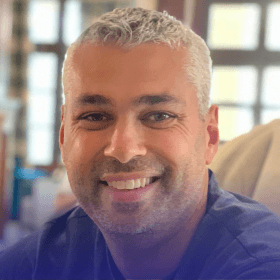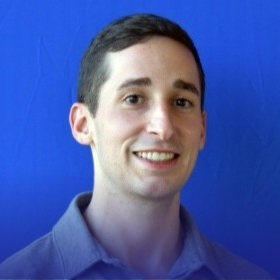Paxton Major, Senior Associate at Northpond Ventures and our newest Board Director, is anything but your typical biotech VC expert. Or, for that matter, your typical technology VC expert.
He’s part of a new generation of investment innovators dialed into sectors of the life sciences industry where therapeutic and digital advances are converging to form of a new ecosystem of solutions with the power to transform and accelerate the drug development process – including AI-enabled drug discovery, digital biomarkers, eClinical, biomanufacturing and process development, IT infrastructure for biotech and pharma, RWE/RWD, biomedical AI and analytics, and more.
This convergence gives Paxton and the Northpond team unique opportunities to spot domains where the science is still waiting on the right technology to unlock its full potential – and to invest in smart solutions like QbDVision. One area of particular interest where he sees significant untapped value: chemistry, manufacturing, and controls (CMC), the functions drug developers rely on to shape their manufacturing processes.
So, why is now the moment to focus on digitizing this unique drug development step? We sat down with Paxton to find out.
Tell us about your role and fund. What’s your focus at Northpond Ventures?
I currently spearhead Northpond’s efforts in life science software as a member of the Digital Health Team, an investment unit that’s focused on the intersection of software, data, computation, healthcare, and the pharma and biotech industries. It’s an incredibly dynamic area right now, one that’s constantly revealing new synergies between clinical, life, and data sciences.
A lot of funds approach these domains separately, but Northpond has a uniquely hybrid strategy that combines both therapeutic and technological innovation – and especially areas where they can be aligned to accelerate new products to patients. I was actually one of Northpond’s first employees, so it’s quite an honor to now be directing a core component of that strategy.
One key focus of that strategy is investing in the digitalization of CMC. Why is this important?
At Northpond, we look for domains where there’s not only a need for new technological solutions, but also significant value to be unlocked from implementing them. CMC is one of those areas for the life sciences.
CMC is a critical aspect in getting new therapies to market in a safe and controlled way. Most CMC programs – especially biological development, where the “product is the process” – start in the pre-IND phases and continue through submission into commercial manufacturing.
At a purely functional level, CMC is a vital but technologically underdeveloped area. While there’s tremendous scientific achievement happening in advanced therapeutic modalities, the vast majority of CMC programs are still stuck in a batch manufacturing mindset.
Recent gains in areas like process analytical technologies (PAT) and continuous manufacturing haven’t translated to more sophisticated information and knowledge management on the CMC side. Valuable efficiencies, insights, and potential data assets are still routinely lost in analog methods and legacy systems. And because of the limits imposed by those older methods and systems, CMC is frequently a source of operational friction, regulatory risks and delays, and data exhaust – all of which the right digital solution can help fix.
That alone makes CMC an attractive target for new technologies.
Visionary leaders immediately see the strategic, overarching value of establishing data frameworks and knowledge management structures as early as possible.
OK. So, why now?
Several macro industry trends are also converging in a way that’s putting a lot of urgency behind the digitalization of product and process development activities.
Scientifically, this is an incredibly innovative time for the industry. In just the last few years, we’ve all seen the massive surge of companies entering the market with increasingly complex new therapeutic modalities – cell therapy, gene editing, viral vectors, and more. There’s a race to get to market with a vast, and conquerable frontier of new opportunities. At the same time, all these innovations are entering the global pipeline with yet-to-be-defined development and regulatory pathways.
This influx is having a big effect on the environment for process development, biomanufacturing, and related workflows that are essential to the success of a new molecule. A lot of CMC teams focused on these new therapeutic classes are still working with a “figure-it-out-as-we-go” mentality that’s focused more on clearing the next hurdle just in time rather than on generating repeatable, scalable breakthroughs.
At the same time, regulatory authorities like the FDA are looking for CMC to be “figured out” earlier and earlier in the development cycle. Today, especially in Silver Spring, the view is increasingly that the manufacturing process is as much a product of drug development as the molecule itself. They want to know, in detail, how that novel new molecule is produced.
Now that biotech companies need to clear that hurdle as early as the IND submission, their CMC teams need to build a whole new level of clarity, consistency, and traceability into their workflows from the very start – or risk painful early setbacks.
These are the reasons we’re seeing a surge of interest in solutions like QbDVision – structured, CMC-optimized digital workspaces that help embed quality best practices into process development from the very beginning.
What do you look for in digital solutions for CMC? What kind of functionality is required to deliver the transformation CMC teams need?
When we look at what kind of digital solutions CMC demands, there’s one simple but critical benchmark any new technology needs to hit: it has to get CMC off the critical paths you see it on so frequently right now. Those are the table stakes.
When our team at Northpond assesses specific digital tools for CMC, we look for four things that tell us a new solution will truly make a needle-moving impact:
- Will it make CMC workflows more efficient by consolidating them, embedding best practices, and structuring their outputs?
- Will working in this environment proactively de-risk process development workflows, especially ones with regulatory deliverables?
- Will using this solution reduce friction and streamline processes at key CMC milestones, especially critical moments like IND, tech transfer, and the launch of new platform applications?
- Will it create structured, insightful outputs that are easy to locate, share, and leverage across the organization, as well as its partner and regulatory network?
Solutions that meet these criteria are ones that do the work we really need to see in CMC right now. We need new tools to address current challenges that typically slow submissions and technology transfers, create regulatory risks, and lose insights within unstructured frameworks. We need to turn CMC into a streamlined process that delivers structured knowledge, productized processes, and reusable data assets.
Any solution that checks these four boxes is also one we feel confident will deliver both day-to-day operational benefits and key process intelligence assets that are extremely valuable to business performance. Any new tool absolutely needs to do both to gain traction in the market – and QbDVision really is the only product that does so.
What makes QbDVision a uniquely valuable solution for companies that want to digitalize their CMC operations?
When Northpond became aware of the opportunity to invest in QbDVision, we immediately saw that it delivers significant value at multiple levels of the organization. That’s huge.
Visionary leaders immediately see the strategic, overarching value of establishing data frameworks and knowledge management structures as early as possible. But at the same time, users need to see the positive impact at their workstations. QbDVision addresses both sets of stakeholders.
Managing organizational knowledge, curating data assets, and standardizing processes are all natural priorities for forward-thinking, data-oriented executives. They immediately see the value of QbDVision’s structured framework to drive operational efficiencies and leverage data for strategic purposes.
A few floors down, QbDVision also solves real problems users face every day: like streamlining tech transfers, evaluating the impact of shifting process parameters, and tracing cause-and-effect relationships upstream to identify the source of unexpected variances.
Bioprocess developers know that they operate within very narrow guardrails – and often want to maintain maximum operational flexibility within that lane. Historically, that has made it very difficult to establish the kind of structure and consistency that lays the groundwork for digitization.
At both these levels of the organization, though, bioprocess stakeholders typically want to maintain maximum operational flexibility within CMC’s narrow regulatory lane. Historically, that need has made it tough to establish the kind of structure and consistency that lays the groundwork for digitization. But that’s also why QbDVision makes such clear sense for both project teams and the C-suite: it gives project teams lots of flexibility in a structured environment that drives accumulating organizational value
It’s a win for every level of the team.
What excites you about joining the QbDVision Board? What will your focus be in this new role?
Any successful VC will tell you that the best investment is always backing a smart, timely product with both a strong product/market fit and a skilled, experienced, and committed team. That’s QbDVision. I want to see it fulfill its potential to become the platform of record for CMC and an indispensable solution for drug development enterprises and startup bio-innovators alike.
The product itself couldn’t be more perfectly timed for today’s drug development teams – both in-house and outsourced partners – who are increasingly working on greenfield projects that need foundational structure and standardization. The QbDVision team has deep, pragmatic industry experience and talented product leadership. It’s the ideal combination for a technology designed for domain experts who live and breathe process development for complex molecules.
So, the product is right, and the market is ready. My focus is on connecting the two as broadly, quickly, and successfully as possible. That’s going to mean growing the QbDVision team while we continue to develop the product – twin efforts that Northpond and I are excited to support. Together, we really are writing the digital playbook for CMC and looking forward to winning with it.
It’s incredibly exciting to be part of a company that’s launching out of its startup phase and into a time when we drive growth and innovation and see how far it takes the company. We feel like we’re part of the journey. And I couldn’t be more thrilled to be here for it.
Meet our growing Board of Directors
Paxton brings deep experience and unique perspective to a remarkable group of interdisciplinary experts who’ve committed to guiding the development of our product and the growth of our team. See who’s already pulled up a chair at the QbDVision boardroom table.
We couldn’t be more thrilled to see him join this world-class board and can’t wait to see where his insights and expertise take us next. If you’d like to learn more about the product, team, and commercial growth strategy he and his fellow directors are shaping, reach out any time to connect with a member of our leadership team.
About Paxton Major
The latest member of the QbDVision Board of Directors is a Senior Associate at Northpond Ventures, and a member of Boston’s thriving biotech community. In his career, he’s served as a board observer for a wide range of therapeutic, diagnostic, and digital health organizations, including Current Health (acquired by BBY), VieCure, Syapse, Scitara, SimBioSys, NanoView, and SeLux Diagnostics. He currently spearheads Northpond’s efforts in life science software as a member of the Digital Health Team, an investment unit that’s focused on the intersection of software, data, computation, healthcare, and the pharma and biotech industries.
